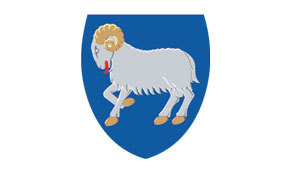Fisheries Management in the Faroe Islands and the new Act on Marine Resources
The aim is for the Faroe Islands to have a fisheries management system, which as well as being economically, biologically and environmentally sustainable, also creates value and development in the Faroe Islands.
The Act on Marine Resources which came into force on 1 January 2020, sets out a clear legal framework for the fishing industry in the Faroe Islands and for the management of marine resources in Faroese waters. The Act underscores the conservation of Faroese marine resources and their utilisation in a sustainable manner, both biologically and economically.
Organisation of the fisheries is based on a licensing system in which fishing rights are fixed to the owner of a given fishing vessel. The objective of the licensing system is to limit the number of licences in order to avoid overcapacity in the fishing fleet and subsequent inefficiencies due to excessive oil consumption and other expenditures.
Although fishing rights are fixed to an owner of a fishing vessel, the Faroese fisheries management system is built on the concept of free transferability of fishing rights. The purpose of this is to encourage the constant allocation of fishing rights to the most efficient units with regards to operations and sustainability as a whole.
Fishing rights are valid for 12 years, while provisions regarding how much an owner of a fishing vessel can fish and which species can be fished, are fixed annually. The 12 year period is set in order to ensure favourable conditions for investment in the industry and long term planning throughout the industry.
The fisheries are managed through a quota system and a fishing days system. The quota system applies to single stock fisheries, whilst the fishing days system applies to mixed stock fisheries.
Mixed stock fisheries are difficult to manage through fixed quotas, due to quotas varying for different stocks, leading to discards. However, through the fishing days system discards are not necessary. According to the Act on Fisheries Resources discards are illegal. The law stipulates that all fish must be brought ashore, along with all by-products such as heads, guts and liver. This is to encourage the full utilisation of the fish.
Both the quota system and the fishing days system are further governed by spatial regulations. Examples are designated areas for small boats, areas for angling, and area closures to protect juveniles and spawning stock, as well as to preserve ecologically significant seabed habitat such as corals.
Regarding the landing and selling of the fish, the main rule is that all fish is to be landed in the Faroe Islands. This is also to encourage the full utilisation of the whole fish. Furthermore, this system guarantees first-rate control and transparency of the landing and selling process.
As well as the quota system and the fishing days system, the Act on Marine Resources includes a quota system which is built on commercial exploration and projects. Through this system, quotas are set aside for projects with innovative and developmental purposes. The purpose of this system of commercial exploration and projects is to encourage continuous research and development of Faroese fisheries resources throughout all of the production chain.
In addition to quotas for commercial innovation, quotas are also available for scientific purposes within fisheries and marine science. These quotas are managed by the Faroese Marine Institute, which is the scientific institute within marine biology in the Faroe Islands. The institute is part of broad international cooperation and will in 2020 be considerably reinforced with the arrival of the new research vessel “Jákup Sverri”.
In addition to the Act on Marine Resources, separate laws on resource rent and taxes also apply to the fisheries sector in the Faroe Islands. The purpose of this legislation is to ensure that a certain part of any potential profit from commercial fisheries contributes to the Government revenues.

